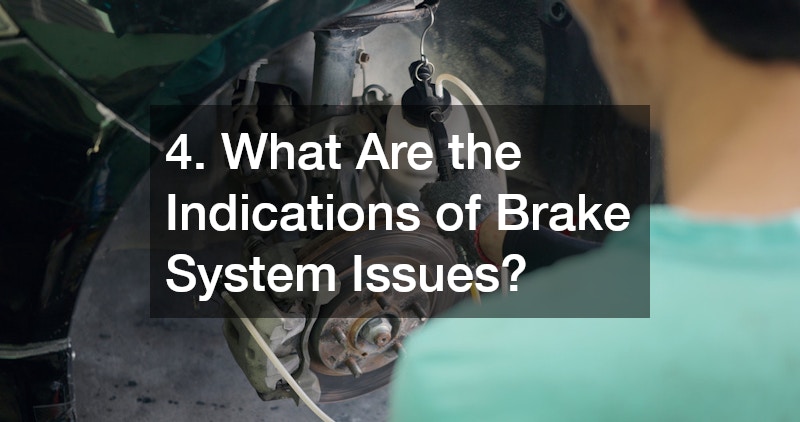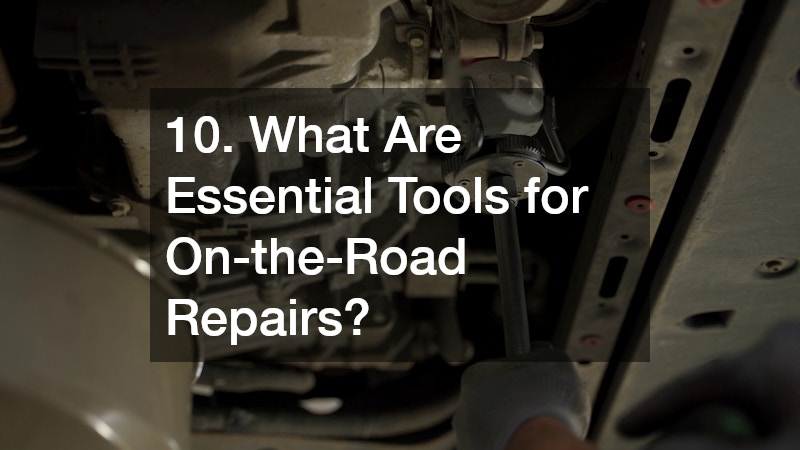Regular home maintenance is crucial for preserving the structural integrity and overall condition of your home. Plumbing issues, for instance, can lead to costly repairs if not addressed promptly. By becoming home maintenance experts, homeowners can prevent complications that might arise unexpectedly, avoiding unnecessary stress and expenses in the future.
It is important to consistently maintain your home to ensure it remains energy efficient and safe. A minor issue, such as a leaky faucet, might seem insignificant, but over time it can result in significant water waste and increased utility bills. Thus, understanding and practicing proper maintenance habits is fundamental for every responsible homeowner. Additionally, addressing minor issues early can prevent them from escalating into major problems, saving you time and money.
Moreover, regular upkeep helps in retaining or even increasing your home’s resale value. By engaging with maintenance tasks—ranging from basic plumbing checks to employing a fence contractor for necessary adjustments—you demonstrate to potential buyers that your home has been well-cared for, which is a significant selling point. Regularly updating systems such as HVAC and ensuring that essential features like windows and doors are functioning properly also add to your home’s appeal and overall marketability.
1. How Often Should You Check Your Fluids?

Maintaining proper fluid levels is essential for keeping your car ready for any journey. Fluids such as engine oil, coolant, brake fluid, and transmission fluid play vital roles in ensuring the smooth operation of your vehicle. Checking your fluids regularly can prevent issues that could result in breakdowns or costly repairs.
Experts recommend checking engine oil levels at least once a month and before long trips. The cooling system is just as critical, especially during the hot summer months when overheating is more likely, so ensure coolant levels are adequate and replace it as needed. Brake fluid should be checked and replaced according to your car’s manual, as it affects your vehicle’s braking performance and overall safety.
Transmission fluid requirements vary depending on whether you have an automatic or manual transmission. Checking the owner’s manual for recommended service intervals is crucial, as neglecting the transmission fluid can lead to significant car repair costs. Local car body shops can assist in ensuring your fluids are at optimal levels, keeping your car ready for any adventure. In addition to these essential fluids, power steering fluid and windshield washer fluid should not be overlooked. Keeping these fluids topped up will ensure smooth handling and clear visibility, both of which are vital for your driving experience and safety.
2. What is the Best Tire Maintenance Schedule?
Tire maintenance is pivotal in making sure your car is ready to go whenever you are. Regular tire inspections not only extend the life of the tires but also enhance fuel efficiency and ensure road safety. Keeping your tires in top shape includes checking tire pressure, rotation, alignment, and tread depth.
Tire pressure should be checked monthly and before any long trips. Properly inflated tires improve fuel economy and reduce tire wear. A reliable practice is rotating your tires every 5,000 to 8,000 miles to promote even wear and prolong tire life.
Checking tread depth is another critical aspect of tire maintenance. If the tread depth is below the recommended level, it’s time to consider replacements to maintain traction. Ensuring your car is tire-ready with the right insurance coverage, such as comprehensive or collision insurance, can help protect you financially in case of a tire-related accident.
3. When Should You Replace Your Car’s Battery?
Your car’s battery plays a crucial role in keeping your car ready by providing the necessary electrical power to start the engine and operate other electrical components. On average, a car battery lasts between three to five years, but factors such as climate and driving habits can influence its lifespan.
Signs of a declining battery include slow engine cranking, dim lights, and corroded battery terminals. If you notice any of these issues, it’s advisable to have a professional check your battery health. Regular testing and maintenance help prevent unexpected breakdowns, ensuring your car remains road-ready.
Local car repair shops and auto parts stores can test your battery’s charge and performance. In the unfortunate event of a breakdown due to battery failure, having a plan, such as roadside assistance through your car insurance, can be a lifesaver. Consulting a car accident lawyer might be necessary if a battery failure leads to an accident.
4. What Are the Indications of Brake System Issues?

The brake system is one of the most critical aspects of vehicle safety, making it essential to ensure your car is brake-ready. Common signs of brake issues include squeaking or grinding noises, a soft or spongy brake pedal, and vibrations when braking. Prompt attention to these signs can prevent potential accidents and costly repairs.
Regular brake inspections, including checks for worn pads and leaking fluid, are vital. Ensuring the brake fluid is topped up and replacing it according to the manufacturer’s guidelines can maintain brake efficiency. This routine maintenance helps avoid the need for more expensive repairs in the future.
If brake issues arise, seek assistance from a local brake repair shop. They have the expertise to diagnose and fix brake-related problems, ensuring your car is always road-ready. Consider investing in car paint protection to keep your car’s exterior looking pristine after any necessary repairs.
5. How Can You Maintain Your Car’s Cooling System?
The cooling system is a pivotal component in keeping your car ready for any journey. It ensures the engine operates within the optimal temperature range, preventing overheating. Frequent coolant checks are necessary to guarantee that the system functions effectively.
Regularly inspect hoses and connections for any signs of leaks, cracks, or wear. Replacing damaged hoses can prevent coolant loss and engine overheating. In addition, ensure the radiator and cooling fan are in good working condition and free from obstructions.
In cases where repairs are needed, consulting professionals who specialize in junk car recycling or scrap yards can be beneficial. They can offer affordable parts or services, ensuring your cooling system keeps your car road-ready without breaking the bank.
6. What Should You Know About Engine Oil Changes?
Regular oil changes are vital for maintaining engine health and keeping your car ready for any drive. Engine oil lubricates moving parts, reduces friction, and minimizes wear, which are crucial to the longevity and performance of your vehicle.
Depending on the type of oil and vehicle usage, oil change intervals can range from 3,000 to 10,000 miles. Always refer to your owner’s manual for specific recommendations. Conventional oil typically requires shorter intervals, while synthetic oils can allow for longer periods between changes.
Neglecting oil changes can lead to engine damage, resulting in costly repairs. Partner with a trusted local car muffler repair shop to handle oil changes and disposal. Keeping up with regular oil changes ensures your engine remains efficient, contributing to your car’s readiness and overall performance.
7. How to Prepare Your Car for Seasonal Changes?

As seasons change, it’s crucial to keep your car ready to face different weather conditions. Preparing your vehicle for the upcoming season ensures safety and reliability on the road. Start with a comprehensive car inspection that includes battery checks, fluid levels, and tire condition.
In winter, consider replacing summer tires with winter tires to improve traction in icy conditions. Ensure windshield wipers function correctly and that there is an adequate supply of windshield washer fluid. For warmer months, check the air conditioning system, as comfortable cabin temperatures are an essential part of a pleasurable driving experience.
Addressing issues like car window repairs promptly is necessary to avoid discomfort and further damage. Consulting with a trusted mechanic or car body shop can provide valuable insights and aid in preparing your car for any seasonal shift, keeping it road-ready year-round.
8. What Role Do Belts and Hoses Play in Car Readiness?
Belts and hoses are the unsung heroes in many car systems, contributing significantly to your car’s readiness. These components play critical roles in systems like the engine cooling, air conditioning, and power steering.
Regular inspections of belts for signs of wear, cracks, or fraying are essential to ensure proper function. The timing belt, in particular, should be replaced according to your vehicle’s maintenance schedule, as a failure can cause extensive engine damage.
Hoses should be checked for leaks and stiffness, as any signs of damage can lead to major issues. Collaborating with a car accident chiropractor can help in understanding how mechanical failures might contribute to road incidents. Ensuring belts and hoses are in optimal condition keeps your car ready for any journey and helps avoid unexpected failures.
9. How Does Regular Maintenance Impact Fuel Efficiency?
Regular maintenance has a direct impact on fuel efficiency, thus contributing to keeping your car ready for the road without excessive fuel costs. Properly maintained components, such as a clean air filter and properly inflated tires, enhance fuel economy and performance.
Addressing engine issues promptly, such as fixing faulty spark plugs or oxygen sensors, can improve fuel consumption. Inadequate engine maintenance can result in increased emissions and fuel use, driving up operating costs. Ensuring a regular maintenance schedule helps reduce the environmental impact and keeps your car performing efficiently.
With increasing fuel prices, understanding how routine car repair influences fuel efficiency is essential. A vehicle that operates optimally not only ensures a smoother driving experience but also minimizes trips to the gas station. Maintaining your car through proper upkeep is key to sustaining fuel efficiency in both short and long journeys.
10. What Are Essential Tools for On-the-Road Repairs?

Having a well-prepared toolkit is part of keeping your car ready for any situation that arises on the road. Essential tools include a jack and lug wrench for tire changes, jumper cables for battery issues, and basic hand tools for minor repairs. Additional useful items might include a tire pressure gauge, a portable air compressor, and a flashlight. A first-aid kit and road flares or reflective triangles enhance safety and preparedness. These tools help you handle common roadside issues efficiently and independently. Also, consider including duct tape, zip ties, and a multi-tool, as they can serve in a variety of unexpected situations, from holding things together temporarily to making minor adjustments.
Don’t forget about spare parts, such as a spare tire, fuses, or light bulbs, which could be vital if something goes wrong while you’re on the road. Keeping your car’s owner manual handy also provides valuable troubleshooting information.
Consulting with a local brake repair shop can provide insights into quality tool selections for your vehicle. Ensuring you have the right tools and knowledge can make all the difference in emergencies, keeping your car ready for unforeseen circumstances. Regularly checking and updating your toolkit is crucial for ensuring you’re never caught unprepared.
Getting Your Car Ready for the Road
Understanding and adhering to essential maintenance practices can go a long way in ensuring your car’s reliability and safety on the road. By routinely addressing the critical areas covered in this article, drivers can enjoy peace of mind and extend the longevity of their vehicles while getting their cars ready for any journey. Regular checks and timely interventions prevent minor issues from growing into major problems, saving you time and money in the long run. Each aspect of maintenance, from fluid levels and tires to seasonal preparations, contributes to a roadworthy vehicle that supports your lifestyle and travel needs. Making these practices part of your routine ensures that your car remains ready to hit the road whenever you are, embodying reliability, efficiency, and peace of mind.
Keeping your car ready is an ongoing commitment that pays dividends in vehicle performance, safety, and fuel efficiency. As drivers, it’s our responsibility to maintain our cars not only for our benefit but also for the safety of others on the road. Additionally, a well-maintained vehicle is less likely to encounter unexpected breakdowns, making your journeys smoother and more predictable. Through diligent maintenance and awareness, we can navigate the journey of car ownership with confidence and assurance. If you have any more questions, reach out to a local auto shop.



